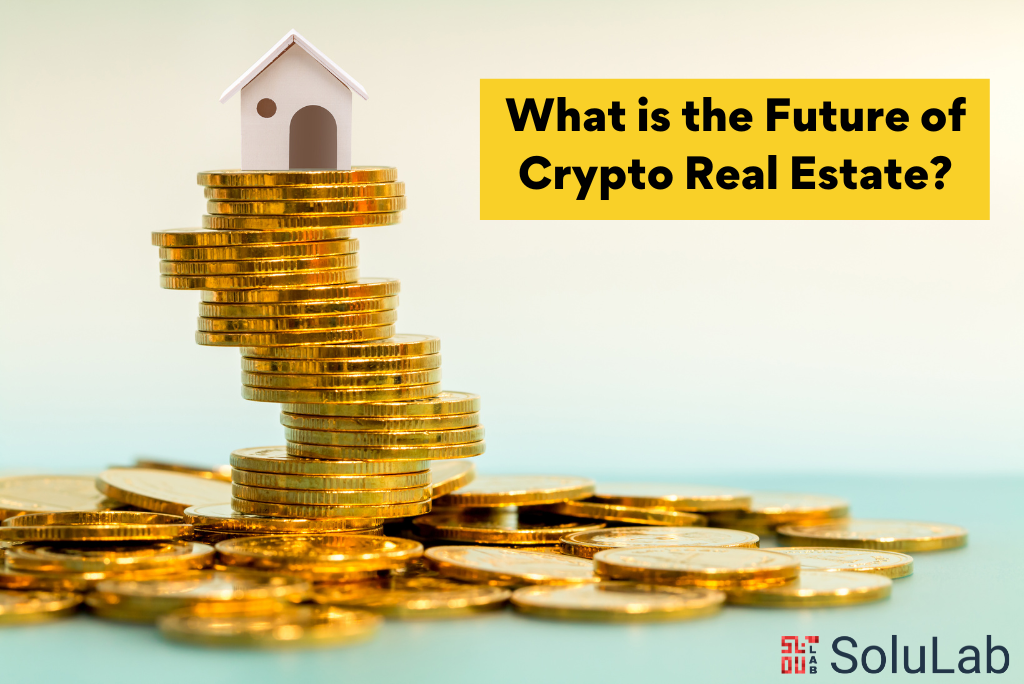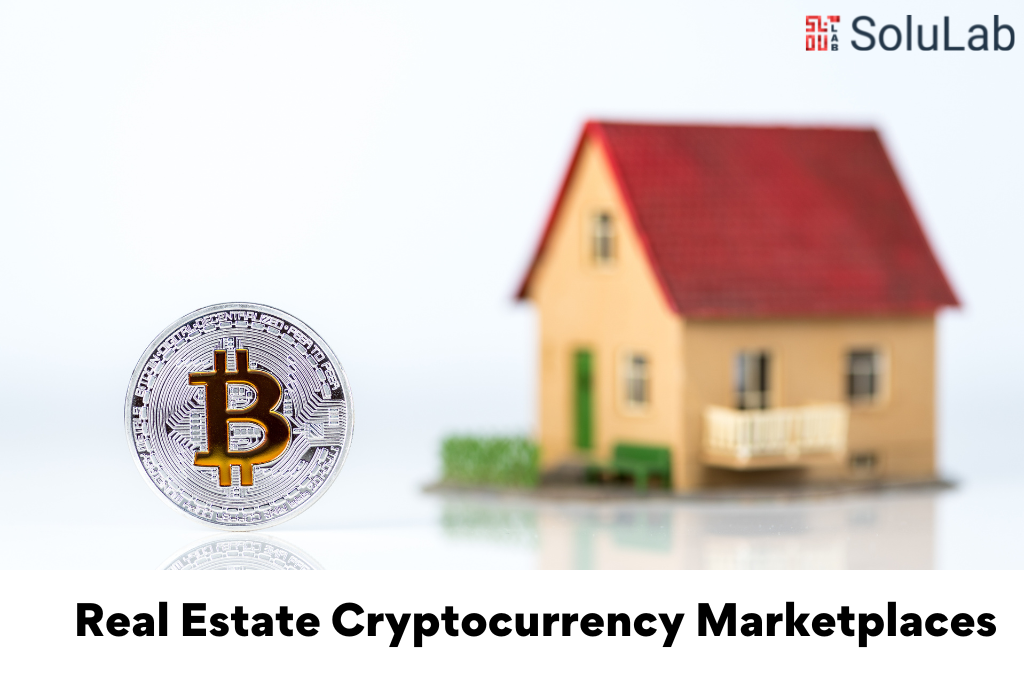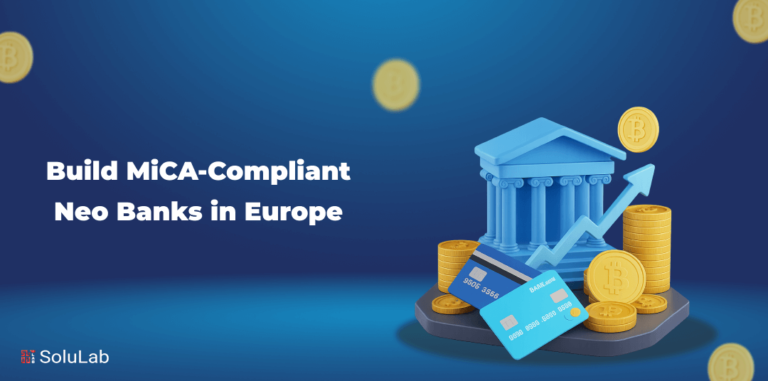
Are you curious about how cryptocurrency is influencing the future of real estate? Blockchain technology has impacted many industries, with bitcoin boosting financial payments, foreign exchanges, and so on, and ICOs altering stock markets, venture capital, etc. In the not-too-distant future, these markets would essentially enable sellers to tokenizing their real estate assets, in this example, a home.
Real Estate’s Cryptocurrency Future
In the following ways, blockchain technology is altering the condition of the real estate market:
-
Smart contracts versus Traditional contracts
The typical purchasing or selling real estate method is time-consuming and requires several parties. Banks, brokers, agents, attorneys, and other professionals are typically required to finish the procedure effectively.
Real estate brokers provide consumers with several real estate possibilities based on their tastes and budget. Lawyers and lawyers assist in comprehending various contract stipulations, among other things. These intermediate companies charge fees for their services, raising the housing cost.
Buyers must ensure they have the funds to pay these middlemen and the obligatory down payment.
In the real estate market, blockchain technology is introducing smart contracts. Smart contracts are contracts that execute themselves. There are no middlemen and no lengthy communication channels.
There are no waiting periods for payments to be moved, authorized, or processed. The parties involved are alerted as soon as the buyer pays the sum in digital currency.
-
Fractional ownership in Real estate for future
Crypto Real estate assets may be tokenized using a Blockchain network. It implies that sellers or property owners may divide their assets and sell them as smaller ventures to various investors.
This notion of fractional ownership might make buying real estate considerably more affordable and accessible to everyone.
An individual may not be able to acquire a whole property due to the high cost and increasing interest rates on home loans, but they may purchase smaller shares jointly.
Investors may band together to purchase pricey houses while saving money on upkeep and rent.
-
As a liquid asset property
Property is often seen as an illiquid asset. Because, unlike bonds and equities, they cannot be turned into cash quickly. Selling a house might take many months, and the seller may be paid in installments.
Real estate becomes a liquid asset thanks to blockchain. Real estate tokenization may assist sellers in swiftly converting their property into fiat cash.
Read more: How to Buy Real Estate Using Cryptocurrency?
Market decentralization

We have been utilizing centralized networks for nearly every operation up until now. A single central authority oversees network use in centralized networks. Examples include social networking networks such as Facebook, banking institutions, etc.
Blockchain provides a decentralized network. The data is stored on numerous computer nodes rather than just one.
A hash algorithm is used to encrypt the data. Each data block includes information from the preceding data block. A data chain is established in this manner.
If there is an incursion, the hash value is changed. The chain is broken because there is a discrepancy in the information recorded between the blocks. This notifies the whole network.
As we can see, blockchain networks for real estate tokenization, such as presenting information such as home prices, signing property contracts, making down payments on house prices, and so on, may make things safer and more transparent.
Because no other entity may access or edit blockchain data records, consumers have greater control over their data.
There are various benefits to implementing blockchain technology in real estate. Furthermore, the housing market prognosis indicates that it is not far off.
If you, as a company leader or CTO, want to enjoy the benefits of blockchain real estate, now is an excellent moment to enter the industry, considering the high demand for housing and the growing popularity of blockchain technology.
You may create a blockchain solution for real estate companies or integrate blockchain technology into current real estate applications.
To do any of this, you will require professional software engineers who are familiar with blockchain technology. Your development team should be familiar with various blockchain platforms, how they function, and the associated development tools and frameworks.
You may simply collaborate with these qualified developers for blockchain real-estate solutions by submitting your first product specs using this form.
Real Estate cryptocurrency marketplaces

If real estate tokenization becomes broad, it will create buying and trading real estate easier and less costly for investors. However, real estate investing has traditionally been a haven for the wealthy. Because the assets are valuable, the entry hurdles are just too high for most individuals.
The idea of fractional ownership is introduced through tokenization. Instead of purchasing a full property, you might own a portion of many properties. Investors may also combine their funds to purchase costly houses that would otherwise be out of reach. It also relieves investors of the additional expenditures connected with acquiring property, such as upkeep and lease.
Tokenization, in effect, alters the playing field and lowers the obstacle to access for real estate investment. Still, it also furnishes an extremely alluring means to invest, incorporating real estate’s huge returns with the stock market’s liquidity. Furthermore, since genuine properties back real estate tokens, they are significantly less hazardous and volatile than cryptocurrencies.
A Future Powered by Cryptocurrency
It is typically advised that you maintain any contract documents pertaining to your house purchase for the life of the loan, ideally longer. But why wait much longer? The IRS cannot pursue you for failing to submit a tax return in any particular year since there is no statute of limitations. As a result, the IRS advises that you maintain this data permanently.
There are further problems with printed copies of crucial documents. Although it is rare, treaties may be modified or counterfeited, encouraging fraudsters to trade residences that they do not possess. Of course, although the paper is fairly resistant when appropriately conserved, it degrades fast in the incorrect environment. Unknowingly storing your paper papers in a moist garage might render them illegible for months. This may be a huge issue if you’re ever requested to make them. Deeds are also important if you have property boundary issues with your neighbors.
So, if paper documents aren’t ideal, why aren’t we keeping them entirely online today? Because, at the moment, digital solutions are often no more secure than paper, if at all. Any digital records will be housed on centralized servers in the conventional real estate system. Your deed won’t get wet or catch fire, but it may be stolen by fraudsters or lost in an IT catastrophe.
Conclusion
The dangerous nature of paper and traditional digital storage is hastening the adoption of tokenization in real estate and other sectors. Cryptocurrency for business is fast becoming a reality, with several firms already transitioning to a blockchain-based approach to managing their data assets.




